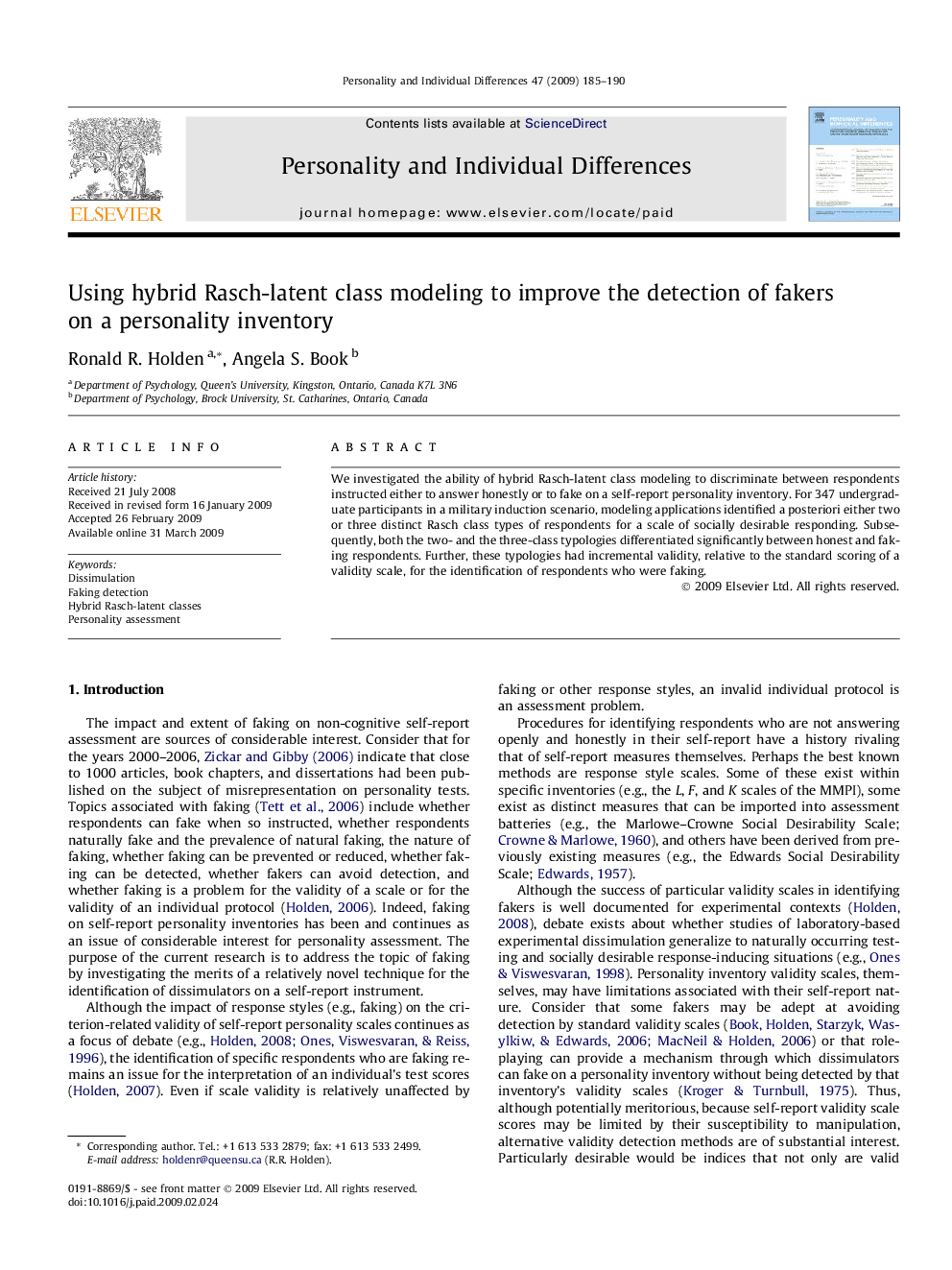| Article ID | Journal | Published Year | Pages | File Type |
|---|---|---|---|---|
| 892175 | Personality and Individual Differences | 2009 | 6 Pages |
Abstract
We investigated the ability of hybrid Rasch-latent class modeling to discriminate between respondents instructed either to answer honestly or to fake on a self-report personality inventory. For 347 undergraduate participants in a military induction scenario, modeling applications identified a posteriori either two or three distinct Rasch class types of respondents for a scale of socially desirable responding. Subsequently, both the two- and the three-class typologies differentiated significantly between honest and faking respondents. Further, these typologies had incremental validity, relative to the standard scoring of a validity scale, for the identification of respondents who were faking.
Keywords
Related Topics
Life Sciences
Neuroscience
Behavioral Neuroscience
Authors
Ronald R. Holden, Angela S. Book,
